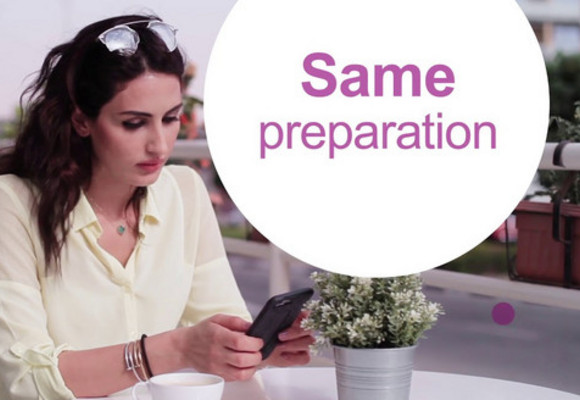
IELTS FAQ
Where can I take the IELTS exam?
Is IELTS accepted for "familiesammenføring" (family reunification) to Denmark? (Yes!)
I need a "B1" test, do you offer that? (Yes!)
How do I prepare for the test?
Which ID can I use as proof of identity?
I am a visitor/temporary resident in Denmark. Can I take the test here?
Should I take the IELTS Academic version or the General Training version?
What score do I need to pass?
Do I receive a confirmation of my registration and payment?
Can I use a dictionary?
Can I bring something to eat and drink?
When are the Speaking tests held?
When do I get my result?
Can I take the test online?
Can I retake the test if I don't get the score I need? "One Skill Retake"
What if I want to cancel or postpone?
What if I am not happy with my results?
How long are the results valid?
Can someone under the age of 18 sit the exam?
What about special needs?
What if I have a complaint or want to give feedback?
What is the main difference between IELTS and TOEFL?
Where can I take the IELTS exam?
🇩🇰 Tests are held in Copenhagen. For Aarhus we currently do not have a schedule, but any test dates in Aarhus will appear on the online registration system as soon as available. We have regular tests with speaking in the morning and the written parts in the afternoon, allowing for a later arrival in the morning for people with travel time.
🇳🇴 Tests are held in Bergen, Oslo, Trondheim and Stavanger.
Is IELTS accepted for "familiesammenføring" (family reunification) to Denmark? Yes!
Yes, the IELTS test is a recognised test that you can use for immigration purposes and visa to Denmark. The B1 level often required is roughly equivalent to an IELTS score between 4.0 and 5.5. Find more information about the IELTS scores here.
You can not choose Life Skills B1 for this purpose.
I need a "B1" test, do you have that? (Yes!)
"B1" is a level you can obtain with the IELTS test. The test itself is not called "B1" but your result can be classified on a level from A1-C2. This is printed on your test report. "B1" comes from the CEFR scale (Common European Framework of Reference) which is a tool to describe and compare different levels of language ability. An IELTS score between roughly 4.0-5.5 would translate to a B1 level. Find more about the IELTS scores here.
Please note that all four skills (Listening, Reading, Writing, Speaking) are required by the Danish immigration authorities, and you can not use IELTS Life Skills for this purpose.
How do I prepare for the test?
There is a wide range of preparation options available and after you register, you will have access to more. See also the How to prepare section on this website.
Which ID can I use as proof of identity?
A passport, or, if you are an EU citizen, a National ID card valid the on test day. You must bring this same passport/ID on the test day, otherwise you will not be allowed to enter the test. Please plan accordingly if you need to apply for a visa or have your passport renewed.
I am a visitor/temporary resident in Denmark. Can I take the test here?
You can take the test anywhere in the world without citizenship or residency. You only need a passport, or, if you are an EU citizen, a National ID card that is valid on test day.
Should I take the IELTS Academic or the General Training test?
The IELTS Academic test is intended for those who want to study in an English-speaking country or where the medium of communication is English, as well as for (medical) professionals who want to practise or work abroad. The General Training version of the test is for those who want to work or live in a country where English is spoken, undergo practical vocational training, or do a work placement. Before you register you should check directly with the institution you are doing the test for. It is your responsibility to choose the version that suits your purpose. For more information please check "Which version of the IELTS test is right for you".
What score do I need to get to pass?
There is no "pass" or "fail" in IELTS. If you are taking the IELTS Test in order to study, please check directly with the university what the minimum requirements are. Different universities require different scores. If you are taking the exam in order to emigrate to Australia, Canada, the UK or New Zealand or another country, please check with the relevant immigration autorities. To search for a recognising institution, use Who accepts IELTS?
Do I receive a confirmation of my registration and payment?
Yes, the registration system sends you a number of auto-mails. If you do not see these emails, please check your spam folder first. You may receive some or all of these:
- a confirmation when you register
- a payment reminder (note: these are automatic and may be sent while your payment is alreay on the way)
- one when your passport has been checked and payment is received (note: payment checking is a manual process and bank payments are not confirmed instantly)
- a final confirmation mail
- a mail about preparation materials
- a mail when the result is ready
Test day information, detailed instructions and the test address are sent by separate e-mail directly from the test centre, around a week before the test date. This is an important email that we ask you to read carefully. Check your spam filter if you do not see it in your inbox.
Can I use a dictionary?
No, you can not use any form of dictionary, spelling checker, notes or similar.
Can I bring something to eat and drink?
You can only bring still (non-carbonated) plain water inside the test room. You can not bring anything else into the test room, so no sweets, gum, nicotine products, or pills.
Candidates asking for an exemption on the grounds of medical needs such as diabetes should indicate this when they register, and must provide medical evidence before the test date.
When are the Speaking tests held?
Speaking tests are mostly held on the same day in the afternoon.
We also regularly offer tests with Speaking in the morning and the written parts in the afternoon, allowing for a later arrival.
When you book, you choose from the available Speaking slots. If some are occasionally held on another day, you can see this when you book your test. Detailed test day information, times and addresses are sent by e-mail about a week before the test.
When do I get my result?
IELTS on Computer: Results are available online 3-5 calendar days after the test and you can download an electronic test report form (eTRF). You do not get a paper test report form.
IELTS on Paper: You can view your results online on the13th day after the test. Your Test Report Form or TRF is issued on paper only and this can be sent by post or picked up. Please note that for IELTS on Paper, you can not download your test report in PDF format.
Can I take the test online?
An online test does exist (Academic only), however, it is run in a global hub, and local test centres such as EDU can not provide any support to you before, during, or after the test. In case of any issues with an online test, you will need to use the contact details given to you when you registered.
Results for IELTS Online take longer (6-8 days) than for IELTS on Computer taken at the test centre (3-5 days). The online version cannot be used for immigration or UKVI, you must have a passport and be 18 years or older, no special arrangements are available and you can not take a One Skill Retake.
Can I retake (parts of) the test? "One Skill Retake"
You can take the test as many times as you wish. It should be noted that to significantly improve a score, it is necessary to engage in further study or practice. IELTS research indicates that scores are unlikely to improve dramatically without extensive English language tuition in the interim.
IELTS One Skill Retake is possible for IELTS on Computer tests, one skill only for each full test, and must take place within 60 days of the original test date if the test centre has places available. Check with the receiving organisation whether they accept results from a OSR.
You can either book through the test teaker portal or contact your test centre for more information.
What if I want to cancel or postpone?
What if I am not happy with my results (re-mark)?
Apart from repeating one skill (OSR, see above) you have the option of applying for a re-mark of (parts of) your test. This process is called Enquiry on Results and costs DKK 950 /NOK 1000. Should your score improve as a result of this re-evaluation, this amount will be refunded to you. Please note that you must apply and pay within 6 weeks of the test date, and on time for us to make the 6-week deadline. The outcome of Enquiry on Result (EOR) can become available on the same day as your application and up to 21 days after your application.
To request an EOR, log in to the Test Taker Portal, choose Your Tests & Results, choose the test date.
How long are the results valid?
As with most English language qualifications, it is recommended that IELTS scores only be accepted after a 2-year period if you can prove you have kept up your language level. It is the decision of the receiving institution whether they wish to accept IELTS results after a period of 2 years, but most institutions will require a new test after 2 years. Please note we cannot access your results after the 2-year period.
Can someone under the age of 18 sit the exam?
Yes, the minimum age is 16. Parents will be asked to sign for their consent if a minor (anybody under the age of 18) is taking the test. Minors will be chaperoned during the Speaking test.
What about special needs?
Whatever special provisions you need, please contact us before you register, describing your special needs, as early as possible.
The IELTS test has been designed to be a fair test. Your English language ability will be assessed objectively, regardless of any disability that you may have. Note that you will need to provide an original medical statement or certificate from a specialist for assessment when you book your test.
If special materials are needed, e.g. a modified version of the test and/or of the Listening test, you must register at least 3 months before the test date.
If you require special arrangements to be made, e.g. extra time, you must contact the test centre at least six weeks before the test, with an original medical statement. (A test centre may not be able to offer special arrangements on all test dates.)
What if I have a complaint or want to give feedback?
The IELTS complaints policy can be found here.
We would welcome your feedback after the test in a short survey here.
You can also always send your comments on ielts@edu-danmark.dk
What is the main difference between IELTS and TOEFL?
With IELTS, you will always have a Speaking test with a person - a one-on-one conversation with an examiner. Many prefer this format over speaking into a computer with TOEFL. During the TOEFL test you will have to speak into a computer in a room together with other candidates, and not everyone is at the same part of the test at the same time. Some people find this disturbing.
The TOEFL test has been shortened in 2023, resulting in a number of universities and immigration authorities now no longer accepting TOEFL. Please check this before you apply.







